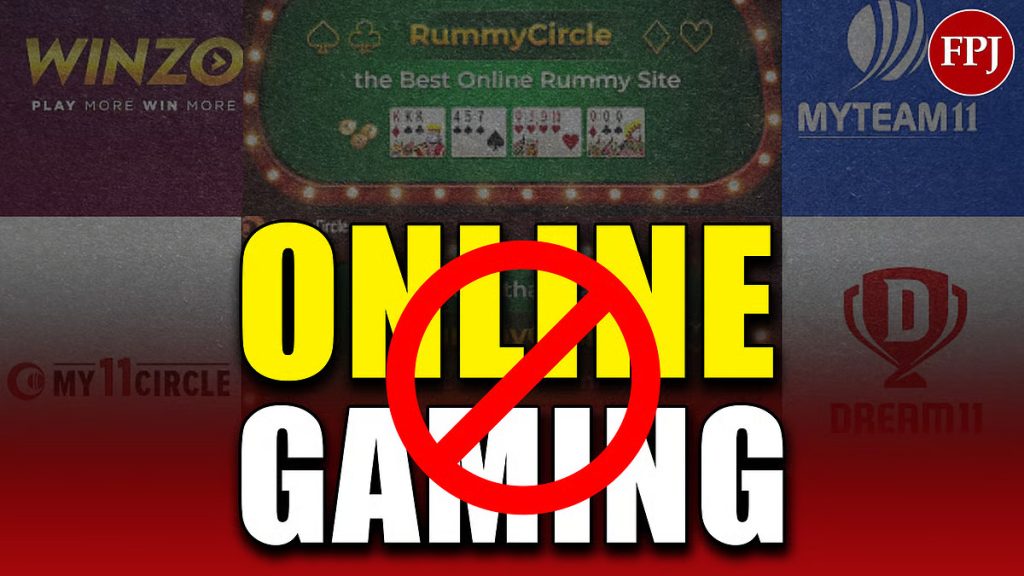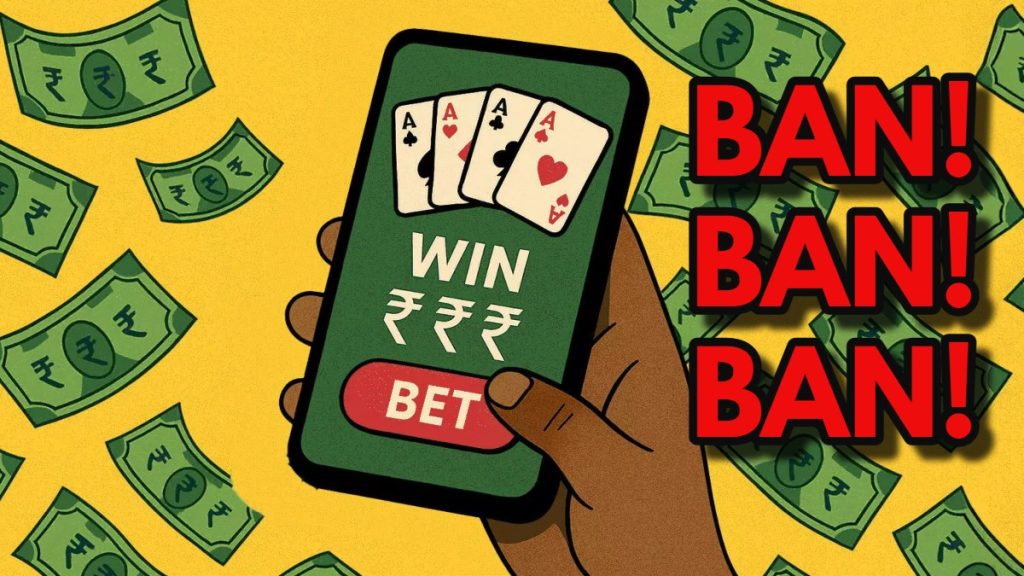On August 20th, 2025, Union Minister for Electronics and Information Technology (Meity) introduced a bill that prohibits online money games in India. The Lok Sabha passed the bill within seven minutes. The bill receives criticism from the Opposition Party and the Gaming Industry.
What is the Gaming Bill?

In Lok Sabha, opposition parliamentarians protested the bill, and amid the protest, Minister Ashwini Vaishnav briefed the three key segments of the bill.
- E-sports that promote strategic thinking, teambuilding, and cultural exchange.
- Online games, like solitaire, chess, and sudoku, are played by most people.
- A segment of online games that has become a security concern for society.
The bill bans all online money games, like poker, rummy, cricket, and lotteries. Although, it promotes e-sports while banning money-based gaming. The law is considered the world’s strictest regulatory approach to digital gambling.
The law imposes strict punishments for the facilitators. Facilitators may face 3 years of imprisonment, fines of Rs. 1 crore, or both. Advertising such platforms carries penalties of 2 years imprisonment and fines up to Rs. 50 lakhs.
Why did the Gaming Industry call the ban a “Death Knell” for the industry?
The All-India Gaming Federation, E-Gaming Federation, and Federation of Indian Fantasy Sports wrote a letter to the Union Home Minister, Amit Shah. The letter says:
“We write to you with the deepest respect and gravest concern regarding the news reports about the draft bill that seeks to ban all real money games, including those based on skill. Such a blanket prohibition would strike a death knell for this legitimate, job-creating industry and would cause serious harm to Indian users and citizens. We firmly believe that progressive regulation and not prohibition is the way forward for the legitimate Indian Industry. With your guidance, India can set a global example by building a safe, transparent, and thriving digital gaming ecosystem.”
The organization said the gaming sector contributes over Rs. 20,000 crores in annual taxes. The online gaming sector employs more than 2,00,000 people, with a projection to double by 2028.
“E-sports is a sport built on skill, discipline, and years of grind. With government recognition and the right infrastructure, India is now poised to become a global powerhouse in esports and gaming culture.”
By Animesh ‘Thug’ Agarwal, Co-founder, S8UL
“For this vision to truly materialize, it is critical that the terminology used in the bill, particularly the distinctions between e-sports, online gaming, online social gaming, and online money gaming, be clearly defined and uniformly understood.”
By Akshat Rathee, Co-Founder and Managing Director, NODWIN Gaming
New Bill Hits Online Money Gaming Industry

The government estimates suggest 450 million Indians play online money games. India’s online gaming sector is worth of $3.7 billion. It is projected that by banning online gaming $9.1 billion to be hit by 2029, drawing 86% of revenue from real-money formats. The industry generates Rs. 31,000 crores in annual revenues, and the foreign investment in the gaming industry is Rs. 25000 crores since June 2022. As per the letter of the All-India Gaming Federation, the industry supports 400 startups.
As per the Indian Government, approximately Rs. 20,000 crore is lost annually.
“Many families suffer because people in their families get addicted to online money games, and life-long savings are lost to these money games.”
By Union Minister, Ashwini Vaishnaw
India has No Federal Regulation till now….
Currently, India lacks federal regulation on online gaming. Senior government officials said the discussion has been ongoing for a long time, but has been kept confidential, as the bill is too sensitive to publicize. At present, different states have their own laws on online gaming. In Sikkim and Nagaland, an operator requires a license for online gaming. In Tamil Nadu, Karnataka, and Andhra Pradesh, there are uneven laws that completely ban online money gaming.
The bill was passed in the Lok Sabha, but for fully operational, it needs approval from the Rajya Sabha and the JPC Committee. There is a long way to go before rules are framed for implementation.
Pic Credit: Google & Pinterest



